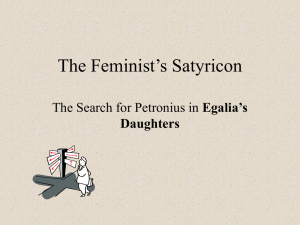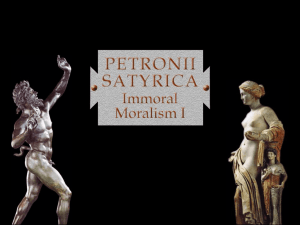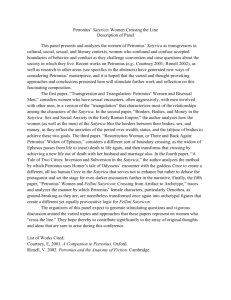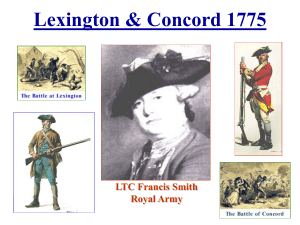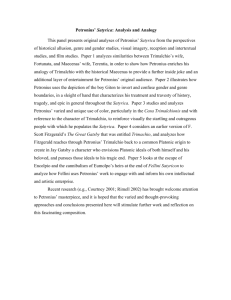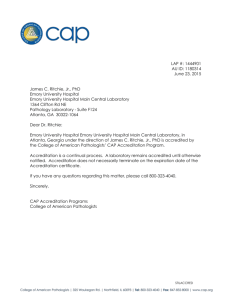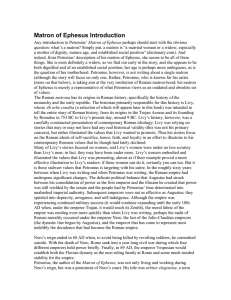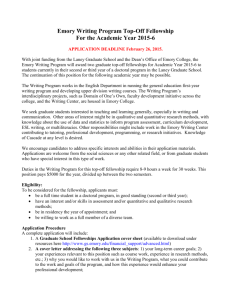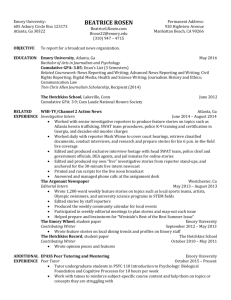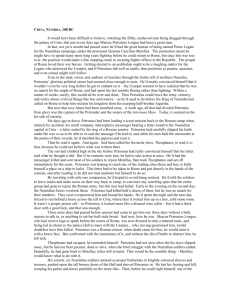Satyrica - The Bill & Carol Fox Center Humanistic Inquiry
advertisement
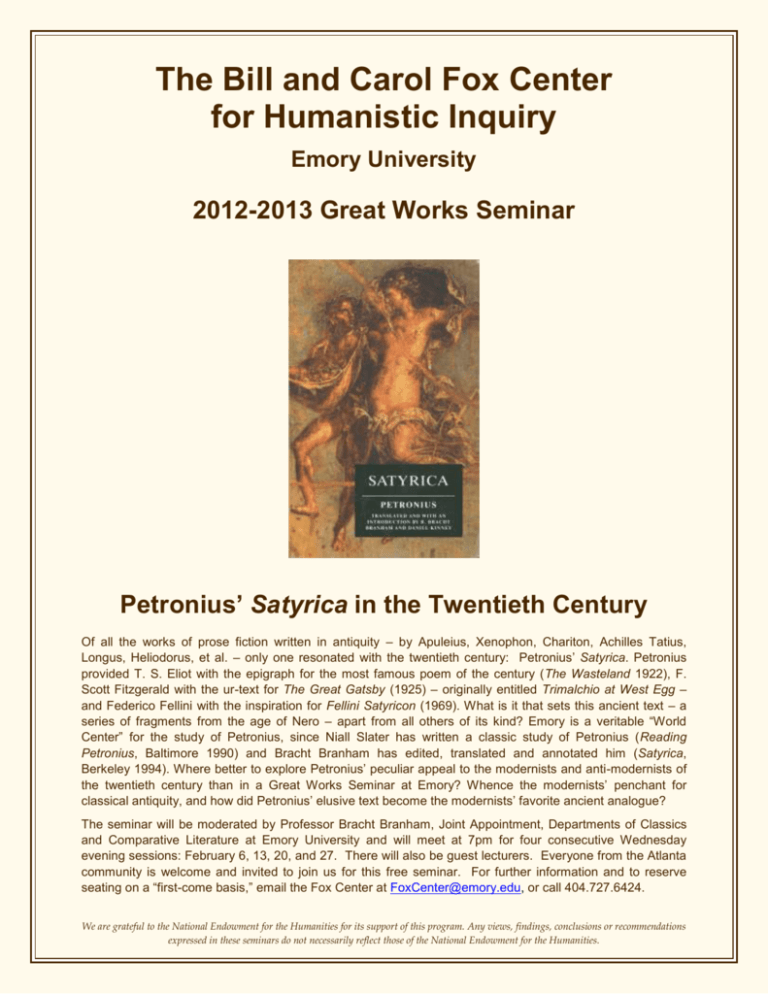
The Bill and Carol Fox Center for Humanistic Inquiry Emory University 2012-2013 Great Works Seminar Petronius’ Satyrica in the Twentieth Century Of all the works of prose fiction written in antiquity – by Apuleius, Xenophon, Chariton, Achilles Tatius, Longus, Heliodorus, et al. – only one resonated with the twentieth century: Petronius’ Satyrica. Petronius provided T. S. Eliot with the epigraph for the most famous poem of the century (The Wasteland 1922), F. Scott Fitzgerald with the ur-text for The Great Gatsby (1925) – originally entitled Trimalchio at West Egg – and Federico Fellini with the inspiration for Fellini Satyricon (1969). What is it that sets this ancient text – a series of fragments from the age of Nero – apart from all others of its kind? Emory is a veritable “World Center” for the study of Petronius, since Niall Slater has written a classic study of Petronius (Reading Petronius, Baltimore 1990) and Bracht Branham has edited, translated and annotated him (Satyrica, Berkeley 1994). Where better to explore Petronius’ peculiar appeal to the modernists and anti-modernists of the twentieth century than in a Great Works Seminar at Emory? Whence the modernists’ penchant for classical antiquity, and how did Petronius’ elusive text become the modernists’ favorite ancient analogue? The seminar will be moderated by Professor Bracht Branham, Joint Appointment, Departments of Classics and Comparative Literature at Emory University and will meet at 7pm for four consecutive Wednesday evening sessions: February 6, 13, 20, and 27. There will also be guest lecturers. Everyone from the Atlanta community is welcome and invited to join us for this free seminar. For further information and to reserve seating on a “first-come basis,” email the Fox Center at FoxCenter@emory.edu, or call 404.727.6424. We are grateful to the National Endowment for the Humanities for its support of this program. Any views, findings, conclusions or recommendations expressed in these seminars do not necessarily reflect those of the National Endowment for the Humanities.
